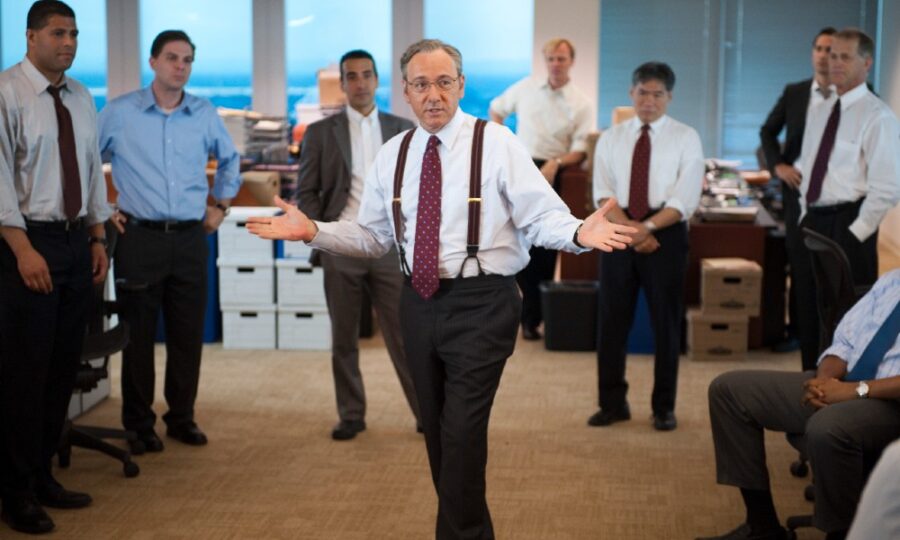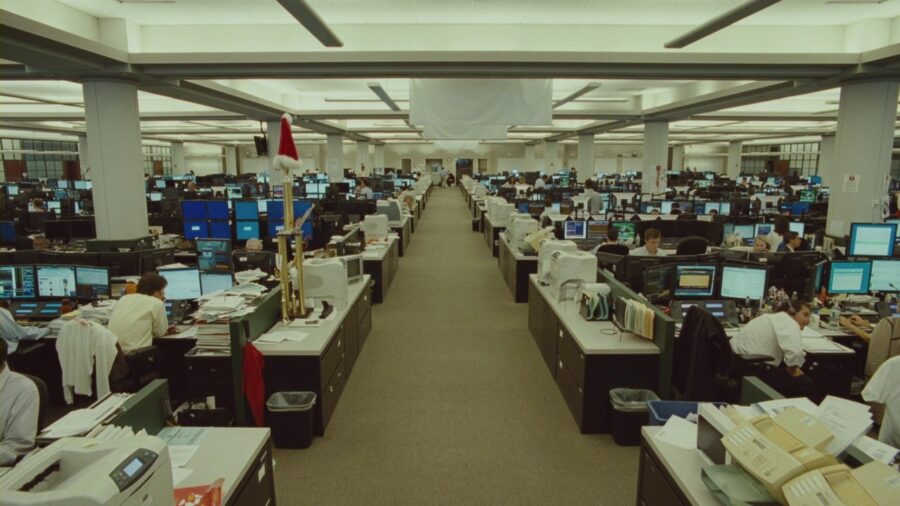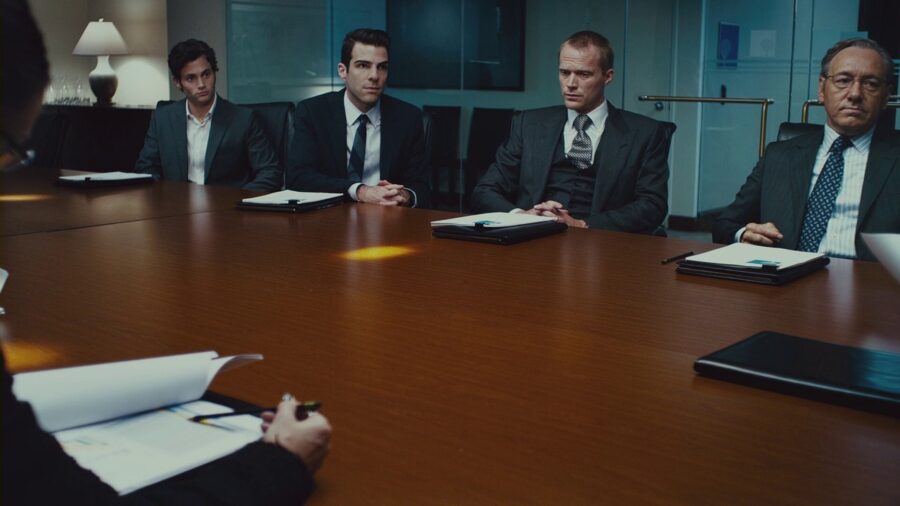Tense Thriller Turns Real-Life Event Into Panic-Inducing Horror, Stream Without Netflix

There’s nothing quite like a drama about the finer points of risk management to get your blood boiling over the weekend. Focusing on the events that led up to the 2008 financial crisis, Margin Call is the most compelling movie you’ll see about the most unlikable Wall Street suits you’ve ever encountered and will leave you foaming at the mouth. Though we’re talking about a fictionalized account of the events leading up to the real-life economic turmoil portrayed in the film, it’s worth noting that writer and director J.C. Chandor is the son of an investment banker, and his screenplay was directly inspired by his own experiences working in the real estate sector before the market collapsed.
Margin Call Is Set In The Great Recession

Margin Call begins with mass layoffs at an unnamed investment bank and immediately tells us what’s at stake. Among the high-level employees who are laid off is Eric Dale (Stanley Tucci), the head of risk management. Immediately upon his termination, he is escorted out of the office by security, and his work phone is disconnected as soon as the building doors close behind him.
Wall Street’s Dirty Little Secret

On his way out of the building, Eric passes off a flash drive to Peter Sullivan (Zachary Quinto), one of his associates. The only thing Eric tells Peter, who formerly worked as a rocket scientist before moving into the financial sector, is to “be careful,” which is a recurring theme throughout Margin Call. The flash drive contains a model that Eric was working on but couldn’t quite finalize before his termination, and Peter can’t help but stay after hours to complete Dale’s work.
Too Big To Fail?

After several hours working on the model, Peter learns that the firm is on the brink of collapse because the company’s debt exceeds the value of their assets. Margin Call quickly shifts gears because the higher-ups at the firm need to get involved to review the model. Sam Rogers (Kevin Spacey) is called back into the office and calls for an emergency meeting with company CEO John Tuld (Jeremy Irons).
Margin Call presents us with the kind of moral dilemma that investment bankers face every day. The firm’s executives are faced with making one of two choices: absorb their losses and tank the company, or save themselves at the expense of their clients, reputation, and the economy.
Financial Jargon Broken Down For the Average Viewer

One thing that Margin Call accomplishes in its storytelling is its ability to effectively translate financial terminology into dialogue that’s easy to digest and understand. Kevin Spacey’s Sam Rogers expertly illustrates this point when he’s first shown Eric Dale’s model; in so many words, he admits to not being able to read the reports on the screen and asks for the high-level breakdown. In a single line of passing dialogue, it becomes clear that the low-level associates have their fingers on the pulse while their much more highly compensated counterparts do not.
The same can be said about the concept of what’s right and wrong in Margin Call, as the looming uncertainty puts every character into fight-or-flight mode because they have to come up with a course of action fast.
A Surprise Success

Margin Call is fearless in its portrayal of how corporate greed at its highest level can cause irreparable damage to the economy if those sitting at the top of the tower are left to their own devices. Shot with a modest budget of $3.5 million, Margin Call pulled $19.5 between box office sales and day-and-date video-on-demand sales, which was almost unheard of in 2011 when it was released.
Critically speaking, Margin Call was a hit, garnering an 87 percent critical score against an audience score of 74 percent on Rotten Tomatoes.
The Danger Of Corporate Greed

J.C. Chandor was universally praised for his directorial debut because of his uncanny ability to pivot from the crucial conversations that take place behind closed doors in the firm’s corner offices to each character’s reaction to the events that are unfolding in real-time. By treading the line between callous, large-scale financial impropriety while trying to humanize the misguided associates behind the disaster, Chandor tells a story that perfectly illustrates how corporate greed can ruin lives on a macro level if left unchecked.
If you’re angry at the economy but can stand to be pushed a little further into the red, you can stream Margin Call on Tubi. But don’t say we didn’t warn you because you’ll never trust anybody with your money ever again after watching.












